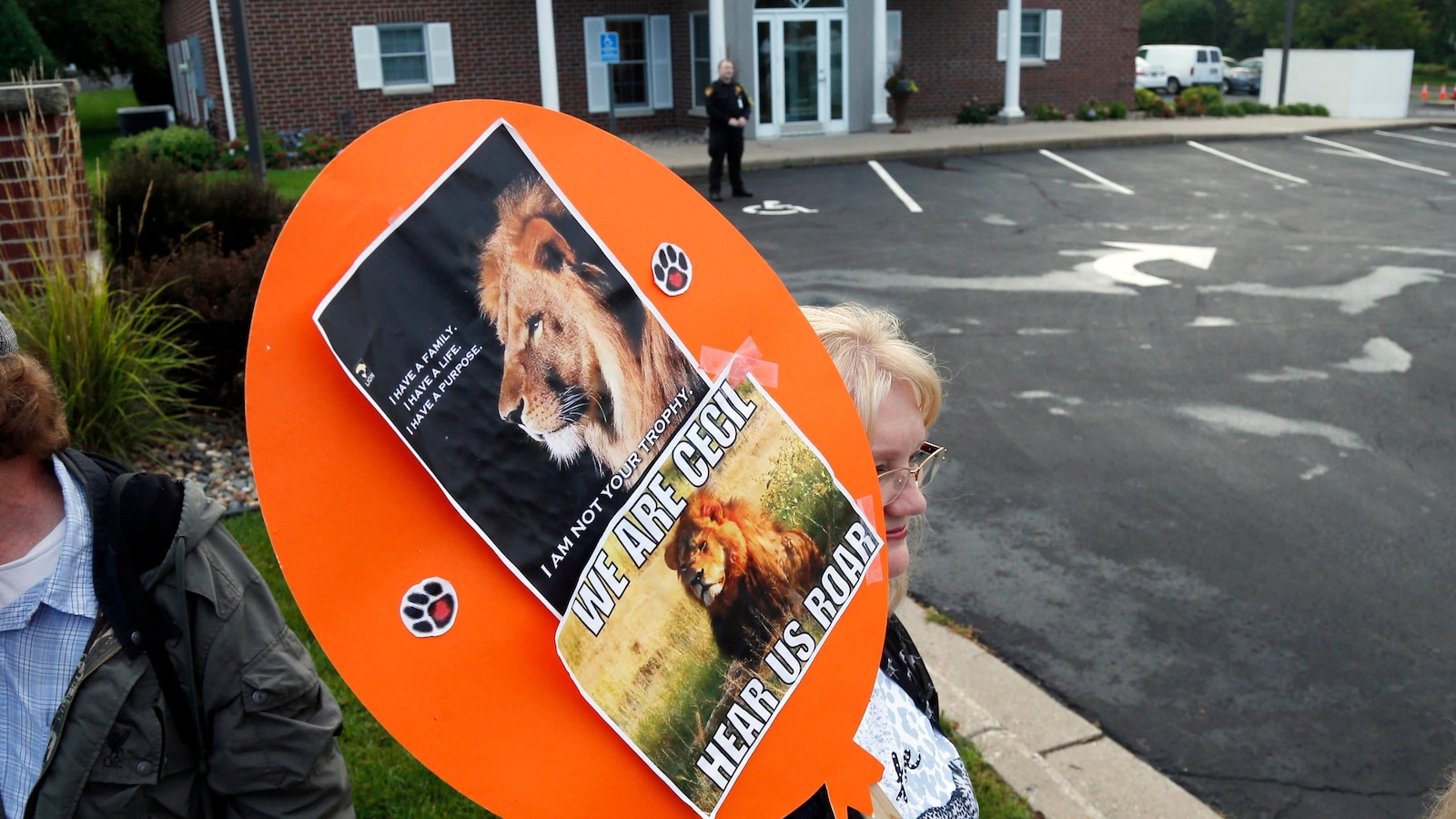Heartbreak for Wildlife: Another Collared Lion Falls to Trophy Hunting!

Imagine the heartbreak of watching a beloved lion, part of a vital conservation study, gunned down by a trophy hunter. This is the tragic fate that befell a collared lion named Blondie in Zimbabwe, sparking outrage among wildlife advocates everywhere. It’s a chilling reminder of the controversial and often cruel world of trophy hunting.
Blondie, a magnificent creature involved in an Oxford University research project, was fitted with a tracking collar sponsored by Africa Geographic, a safari company committed to conservation efforts. Tragically, this lion was killed in June near the iconic Hwange National Park after being lured out of a protected area using bait—an act that has reignited debates over hunting regulations in the country.
The outcry over Blondie's death echoes the public outrage following the infamous killing of Cecil, another research lion who met a cruel fate at the hands of an American tourist nearly a decade ago. Cecil's demise became a global symbol against the barbarism of trophy hunting, and now Blondie has taken his place as a rallying point for conservationists advocating for change.
According to Africa Geographic's CEO, Simon Espley, the killing of Blondie not only contradicts the supposed ethics of trophy hunting—where hunters claim to only target aging, non-breeding males—but also illustrates a terrifying reality: no lion, regardless of its status, is safe from the hunting guns. “That Blondie’s prominent collar did not prevent him from being offered to a hunting client confirms this stark reality,” Espley stated.
Despite the backlash, a spokesperson for Zimbabwe’s National Parks defended the practice, highlighting that hunting is legal and regulated, with up to 100 lions permitted to be hunted each year. They argue that the funds generated from trophy hunting are crucial for conservation efforts in a country where wildlife protection is often underfunded.
Tinashe Farawo, the Zimbabwe parks agency spokesperson, mentioned that while the collar is designed for research purposes, it does not exempt the lion from being hunted. He acknowledged that hunting often takes place at night, so the visibility of such collars may be compromised.
This divide within the conservation community is stark. On one side, some argue that regulated hunting can provide necessary funds for conservation; on the other, many insist that killing wildlife for sport should be banned altogether. It’s a complex issue, especially in a continent where wildlife tourism is vital for local economies.
As the world grapples with the grim reality of declining lion populations—estimated at around 20,000 across Africa—this story serves as a painful reminder of the conflict between human interest and the survival of one of nature's most iconic species. Lions are currently listed as vulnerable, and the loss of breeding males like Blondie could have dire implications for the future of these majestic animals.


























